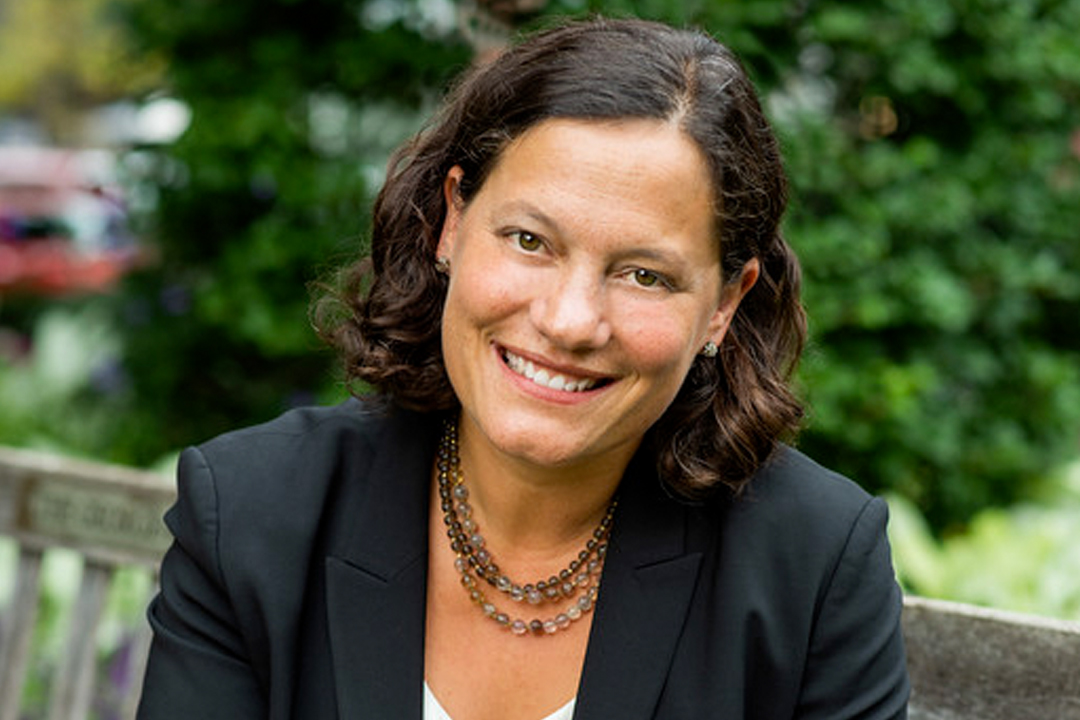Kate Weisburd, Associate Professor of Law, has received honorable mention for her forthcoming law review article, “Punitive Surveillance,” in the Association of American Law Schools (AALS) Section on Criminal Justice Junior Scholars Paper Competition for 2021.
In the article, Professor Weisburd examines whether the deprivation of fundamental constitutional rights, such as the right to protest, to attend religious services, or to privacy, can be imposed as punishment, and in lieu of incarceration, for a crime. She concludes that the answer is not obvious, but the question is critical as new forms of non-carceral punishment are increasingly relied on, particularly during the COVID-19 pandemic.
This shift is especially evident in the use of surveillance technology such as GPS-equipped ankle monitors, smart phone tracking, and searches of electronic devices, all of which collects and analyzes the location, biometric data, speech, and other information for tens of thousands of people on pretrial release, probation, and parole. According to Professor Weisburd, this type of invasive, unrestricted monitoring, what she terms, “punitive surveillance” is often touted as a humane substitution for incarceration.
Drawing on original empirical research of almost 300 state and local policies, Professor Weisburd reveals the punitive nature of electronic surveillance and explains why it should be subject to constitutional limits. She argues for a fundamental-rights analysis of punitive surveillance and asserts that the gaps in existing law may stem from judicial reluctance to acknowledge that many punishments, including in some circumstances incarceration itself, may illegally strip individuals of constitutional rights.
“I am honored by this recognition from AALS and immensely grateful to the incredible team of GW Law research assistants who tracked down and analyzed hundreds of public records governing the use of electronic surveillance of people on court supervision,” said Professor Weisburd.
Professor Weisburd, along with her research assistants, is also writing a report on the findings from the empirical research and will be creating a website to share the original records they obtained.
Professor Weisburd’s primary interests are in the areas of criminal investigation, adjudication, and post-conviction law as they relate to the street-level implementation of criminal justice reform. In particular, her research focuses on alternatives to incarceration, including the emerging and varied forms of electronic surveillance and non-carceral punishment.
Before joining GW Law, she founded and directed the Youth Defender Clinic at the East Bay Community Law Center, which is part of the clinical program at UC Berkeley School of Law. In that role, she taught and supervised law students representing young people in juvenile court and school discipline proceedings.
In addition to her clinical teaching responsibilities, Professor Weisburd served as a lecturer at Berkeley Law, teaching courses on the school-to-prison pipeline. Prior to creating the Youth Defender Clinic, she was a fellow and supervising attorney in Berkeley Law's Death Penalty Clinic. In both clinics, Professor Weisburd maintained her own caseload and represented clients at trial, on appeal, and in post-conviction proceedings.
A former law clerk for Judge Lawrence K. Karlton in the U.S. District Court for the Eastern District of California, she worked as an investigator in death penalty cases at the Southern Center for Human Rights in Atlanta before attending Columbia Law School.


